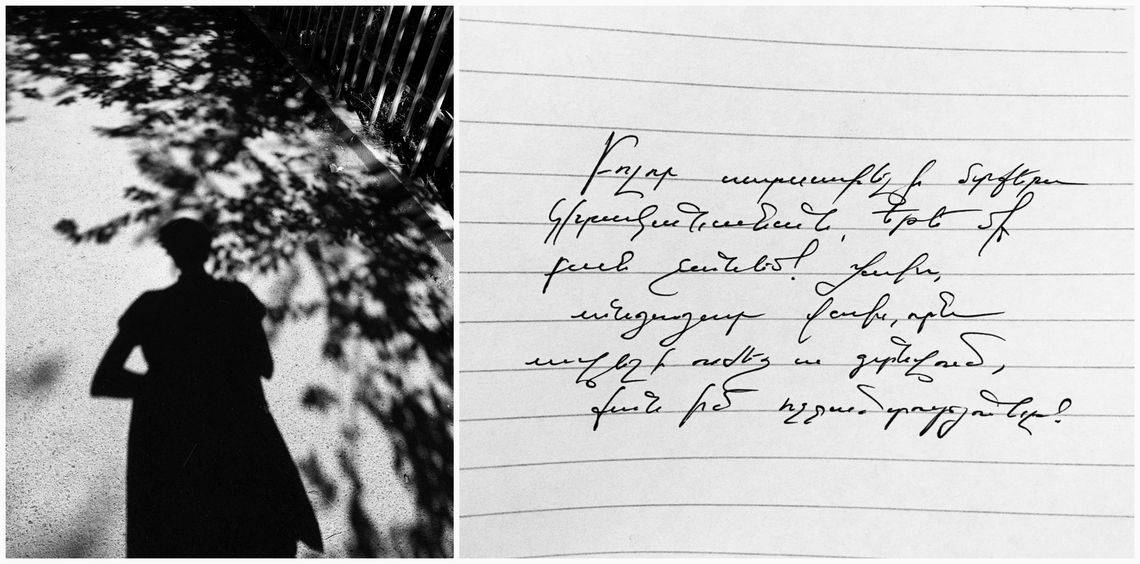
I was 12 when I began to notice odd patterns in my behavior. Every time I had a thought that frightened me, I immediately felt compelled to touch certain objects, repeat specific words in my head, or stare in a particular direction until I’d find peace. My anxiety and fears intensified as I grew older and my daily “rituals” started to exhaust me. I couldn’t find any logical explanation for my fears but being well aware that my behavior was not “normal”, I worried people would think I had gone insane. So I said nothing.
Contrary to when I had problems with my physical health and my parents would go into a frenzy to nurse me back to health, whenever they noticed my odd behavior, they would scold me and tell me to stop. They never tried to understand what was behind my strange gestures or extreme perfectionism.
I eventually began to study literature on mental disorders and finally found the symptoms that described my condition perfectly. I found out I had Obsessive Compulsive Disorder (OCD) when I was 20. I was terrified to learn I had a mental disorder, and incredibly relieved to learn that my problem had a name, that I wasn’t the only one with the condition.
According to Aram Hovsepyan, a psychiatrist, about 3% of the world’s population has OCD and about 8-10% of people have various types of anxiety disorders. Hovsepyan has estimated that there should be around 200,000 people with anxiety disorders in Armenia. “But only a very small number of people are aware of the issue,” says Hovsepyan.

According to Khachatur Gasparyan, a candidate of psychological sciences, official statistics show that the number of people who seek psychological services in the Republic of Armenia does not exceed the 1% of the country’s population. Gasparyan believes this number is a result of the social stigma that likely starts with the family, distrust in the field of psychology and lack of mental health awareness.

G. is 20 years old. She has Panic Disorder. After tense conversations and unpleasant memories, G. finds it difficult to breathe, her heart rate increases, she feels pain in different parts of her body and her limbs get numb. “I can’t lie down because it makes me feel like I’m dying. Maybe people think I’m making a big deal out of nothing. They do not understand what it is like to feel as if any minute now, you might explode from pain.”
G. believes her family will accuse her of being egoistic if she opens up to them. “The problem is serious and the ‘what are you talking about?’ attitude makes it even worse,” says G. Despite this, she learned to ask for help from close friends. And knowing first hand how difficult it is to go through panic attacks on her own, she urges people not to be ashamed and seek help. G. is now saving up for treatment with a private psychotherapist rather than going to a state-financed clinic.
According to Aram Hovsepyan, the problem of psychiatric and psychological services provided by the state is that there are not enough specialists. “It turns out there are only two clinical psychiatrists for every 40,000 patients. In such conditions, it is impossible to dedicate sufficient time to each patient, and as a result, the treatment isn’t complete.”

K. is 21 years old. The symptoms of her OCD started manifesting when she was five years old. Her compulsions included counting, washing hands and making the sign of the cross. The condition became more aggravated during her teenage years. When K. was 14, she was sure she was “abnormal” because someone had put a curse on her. Later she was afraid that her oddities were the result of a mental defect. At the age of 20, K. began to study literature on mental disorders. Like myself, she eventually came across OCD.
Her daily rituals had taken over her life and K. had to leave her university studies and take care of her health. Now K. continues her treatment with medication and sees positive changes. However, getting help was not an easy process, she had to change several therapists. “My first psychologist, was not familiar with OCD and told me that I pretended to have a mental disorder to escape my problems,” said K.
According to Khachatur Gasparyan, there is no oversight provisioned by law when it comes to the licensing of mental health professional or the treatment of mental disorders in Armenia. Individuals can provide various psychological and psychiatric services without any accreditation or state regulation. According to Aram Hovsepyan only psychiatrists should deal with the treatment of mental disorders. “A psychologist can only guide the patient,” said Hovsepyan. According to him, people should not trust those who can’t clearly diagnose the patient’s problem after the first visit and those who prescribe several medications simultaneously.

